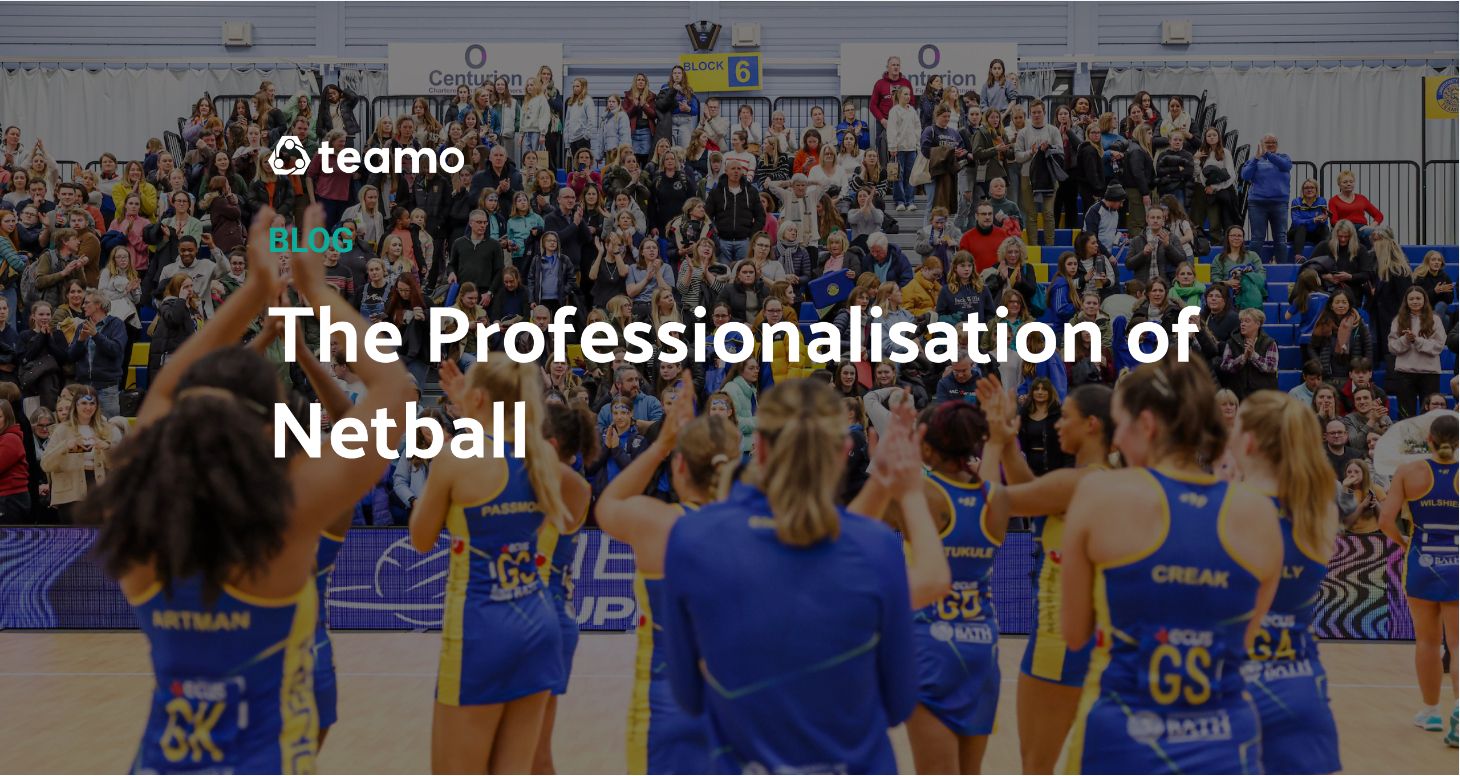The Netball Superleague (NSL) is the UK's top-level elite netball competition. Since its introduction in 2005, it has continued to grow in popularity. In 2021, England Netball commissioned a review of the professionalisation of elite netball in England, involving an investigation of clubs, members, and other partners. This was heavily influenced by the 2018 Commonwealth Games, where England Netball placed 1st, gaining intense visibility and media attention. The team also won the Greatest Sporting Moment of the Year award for their dramatic win against a formidable Australia.
On the 30th of May, 2024, England Netball announced the NSL 2.0 in an attempt to once and for all professionalise a sport that so many people love. This announcement has received mixed reviews. Netball lovers and players feel that their opportunities are being taken from them. However, England Netball's only aim is to improve this sport and its visibility. In this blog, I will discuss what the NSL 2.0 entails, the benefits and limitations it brings, and finally an overall summary.
What have they executed to professionalise English netball?
There are five key elements to the Netball Superleague 2.0. These include:
- Four teams being cut from the League and the introduction of two new teams.
- Teams can now only have ten players in their matchday squad.
- Athletes will receive a significant pay rise.
- An increased number of games played in arenas/stadiums.
- An increased number of games televised.
The teams that have been cut from the English NSL are Team Bath, Surrey Storm, Strathclyde Sirens, and Severn Stars. This has caused heartbreak for the fans of these teams and even deeper heartache for the coaching staff and players who have grown to love and cherish their clubs. The cut of these teams has allowed the entry of Birmingham Panthers and Nottingham Forest Netball. Both clubs have substantial sponsorship, and despite the sadness due to the loss of so many clubs, there is excitement to witness the new teams and their impact on England netball's professionalisation.
The change in the match day squad was not a decision made lightly by England Netball. The squads will now be ten instead of twelve, limiting the number of players selected for each club and creating fewer opportunities for netballers to progress to the elite level. However, this minimised number will allow the truly elite netballers to progress, making teams stronger and hopefully matches more exciting and thrilling to watch, with more games going down to the final whistle. With netball being more exciting to watch, this will bring in more viewers and hopefully media attention, meaning the NSL 2.0 should have a step up in its success.
The third key change revolves around athlete payment. The athletes will receive a significant pay rise compared to previous seasons, due to new investors in the NSL as well as a reduced number of teams and players. The pay rise has many benefits. Netballers in the UK are part-time, with the majority of them holding multiple jobs. With this pay rise, they could potentially afford to forgo extra jobs, resulting in them focusing more time on progressing their skills as netballers.
The NSL 2.0 aims to have the majority of games played in arenas/stadiums. This is a key reason why the four initial teams were dropped, as they did not have an arena for their home games. The idea of having many games played in arenas is to promote fans to come to watch the games live. This also allows the clubs to receive further revenue from more ticket sales. With more money coming in, netball can take a step closer to professionalisation.
The final key change to the NSL is that it will be televised significantly more, allowing greater exposure for netball through sports channels and media in general. The more exposure a sport attains, the more people will be interested, allowing netball's professionalisation to occur at a greater rate. With more TV exposure, athletes will have the opportunity to market themselves as sports celebrities, allowing them to generate additional income. This means they can focus solely on netball and improve their skills, resulting in netball becoming more competitive and, therefore, more enjoyable to watch.

Benefits:
The NSL 2.0 holds many benefits, including greater financial aid and desire from investors, a step closer to the sport's professionalism, and a greater vision for the future, making it beneficial in the long run.
The first benefit of greater finances is extremely important. The sport cannot begin professionalisation without financial aid. The growth in investment in English netball has allowed the NSL 2.0 to begin. Netball is a growing sport, and the increased investment will allow it to continue to develop and conquer women's sports. Furthermore, the increased financial aid can significantly benefit the players. As stated above, the more money they are paid, the more time they can dedicate to the sport.
The second key benefit of the NSL 2.0 is that it is a step closer to professionalisation. Professionalisation will revolutionise netball. Athletes will be able to solely focus on the sport, allowing improved skills, fitness, and ability. This will result in netball becoming a more competitive sport, attracting viewers from all age groups, genders, and nationalities.
The final key benefit of this step to professionalisation is that it is a long-term plan. This announcement has caused major upsets across the UK, but people need to look at the bigger picture. This is a big success for netball as a sport. With more money, competition, and exposure, netball will continue to grow in contemporary society.
Limitations:
Despite the benefits of NSL 2.0, there are many limitations, including limited opportunities in the South West of England and Scotland, previous NSL players being dropped, and the negative effects on universities.
The axing of Severn Stars, Team Bath, Surrey Storm, and Strathclyde Sirens has caused major upset for netball fans across the UK, especially in the South West of England. Now, the closest teams for the South West are in Cardiff or the Midlands. The uproar from netballers and parents was intense. There is now extremely limited access for the South West. However, there has been a recent announcement from Team Bath Netball that they are still offering a performance pathway from U15's-U23's. Despite this good news, there is minimal opportunity for development past the age group stage. The NSL needs to decide if it is worth professionalising the sport if this leaves youth netballers with limited opportunities.
The change in the number of teams and players in each team has meant that many previous NSL players will be dropped, making this level of play out of reach. Despite the obvious benefits that arise from minimising teams in the league, does it again outweigh the potential opportunities that are being taken from athletes?
The final limitation is the effect it will have on University Netball. A key example of this is the University of Bath. Despite other universities losing their home club, they have many other teams within a reasonable distance. The University of Bath is in the South West of England. The netball at this university has always been of a high standard. However, the loss of their beloved NSL team will cause a halt in the potential netball talent joining the university. In the long run, this can be damaging to the reputation of the university's netball programme.
Summary:
The professionalisation of netball in England, particularly through the introduction of the NSL 2.0, represents a significant step forward for the sport. Despite its growth since 2005 and heightened visibility after England's triumph in the 2018 Commonwealth Games, the recent changes have sparked mixed reactions. The NSL 2.0 involves major adjustments: reducing the number of teams, capping matchday squads at ten players, increasing athlete pay, hosting more games in arenas, and expanding television coverage. While these changes aim to elevate the sport's profile and financial viability, they also present challenges. The elimination of teams like Team Bath and Strathclyde Sirens has disheartened fans and players, particularly affecting regions like the South West and Scotland. Furthermore, reduced team sizes limit opportunities for aspiring athletes, and the loss of NSL teams can impact university programs. Despite these drawbacks, the NSL 2.0 promises long-term benefits by attracting greater investment, enhancing player focus, and increasing the sport's competitiveness and visibility. This transformation marks a crucial phase in the evolution of netball towards full professionalisation.








